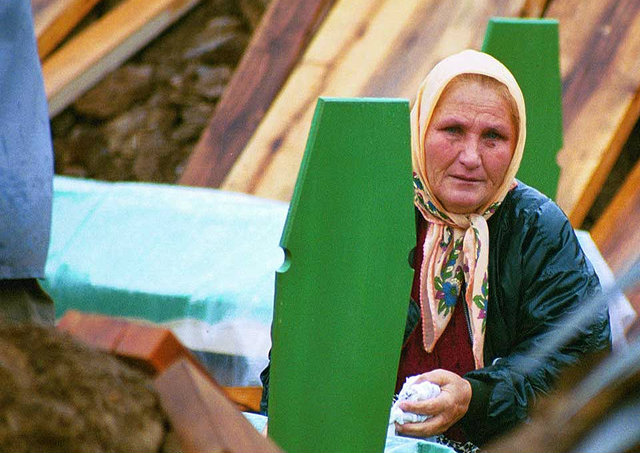Send to a friend
The details you provide on this page will not be used to send unsolicited email, and will not be sold to a 3rd party. See privacy policy.
At the 24th European Congress of Clinical Microbiology and Infectious Diseases, which ran between 10-13 May, things opened at a steady pace. Stipan Jonjić, a professor of medicine at the University of Rijeka in Croatia, gave a talk early on describing the hurdles he encounters in his daily work.
He highlighted several problems that are familiar to researchers working on less well-off nations: a weak grants management system, inertia of institutions — plus the difficultly in recruiting experienced researchers and the cost of laboratory consumables.
“The emergence of unknown diseases, in addition to killing, wounding and starvation, was an additional factor contributing to panic.”
Mirsada Hukić, University of Sarajevo
Such problems need addressing — but the real inspiration of the day was Mirsada Hukić, head of the Institute of Clinical Microbiology at the University of Sarajevo in from Bosnia and Herzegovina. She spoke about her experience of research in extraordinary times of war. The war in this country from 1992 to 1995 was particularly brutal — and had a strong impact on its economy and public health system.
“The emergence of unknown diseases, in addition to killing, wounding and starvation, was an additional factor [contributing to] panic,” she told the audience. “One of the most prominent was the epidemic of haemorrhagic fever with renal syndrome, which broke out among soldiers in northeast Bosnia and Herzegovina.”
There were no conditions for quality routine laboratory work, and especially not for research. Yet despite the challenges, Hukić and her team began to observe and analyse what might be causing the disease.
“We started to research between military opposing sides, in the area with a large number of mines and with extremely scarce resources”, said Hukić. “But we could not do it alone, so our approach was to establish a worldwide network of experts with the help of World Health Organization.”
These experts supplied the necessary equipment for research and introduced Hukić’s group to the skills of hunting rodents where Hantavirus, the pathogen which typically causes haemorrhagic fever, normally reside. That led to the discovery of a new species of Hantavirus, followed by a publication of the results in the prestigious journal The Lancet.
Collaboration has become a cornerstone of modern science, and Hukić strengthened my conviction that working together is the key for successful scientific endeavours — especially in the worst circumstances. Although every tragedy has a different face, I think that war-torn countries can draw some lessons from her example. It is important to carefully observe the newly formed conditions, think analytically, work hard and inevitably take some risks.
In his talk, Jonjić emphasized that only excellence could truly guarantee funding by putting the researcher on global map and creating opportunities for collaboration. That rule can translate to war times as well, where a good idea is bound to get recognized and supported by international peers, which may in turn steamroll into important and successful research.














